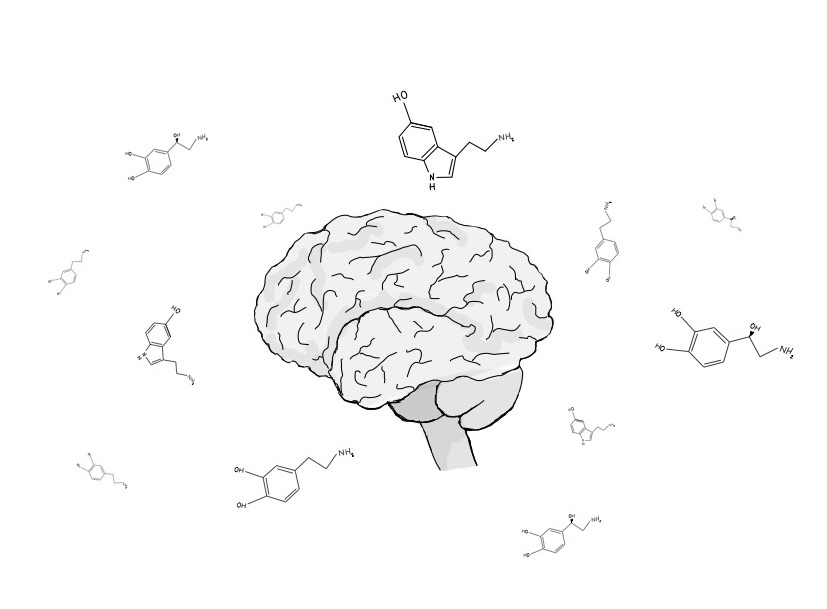Our body is full of naturally occurring chemicals, including neurotransmitters and hormones, which interact with bodily systems to fulfill bodily functions. When you exercise, you help keep these hormones in balance with one another.
Exercise has many benefits for the body and the mind. It leads to better sleep, mood and cognition. Exercise also decreases stress and risks of physical and mental health conditions. So what exactly do the neurotransmitters and hormones do during exercise that cause those benefits?
When an individual exercises at a moderate level, various chemical and physiological changes take place within the brain and the body. When you exercise neurotransmitters; endorphins, norepinephrine, serotonin and dopamine are released in the brain giving you that post exercise “high,” that regulates your bodily functions.
“When I think about exercising, I think about how the neurons in the brain communicate, and they communicate via neurotransmitters,” said Norman Stremming, the AP Psychology teacher at Ida B. Wells.
Dopamine, sometimes referred to as the “happy hormone,” is released when you do things that you enjoy, such as hanging out with friends, eating a delicious meal, watching your comfort show and exercising.
“And dopamine is the pleasure principle [neural transmitter]. So there’s a feel good feeling, even when the body is under stress, you have something like that [pleasure principle],” said Stremming, “so that’s perhaps why some of us get that sense of accomplishment [when we exercise].”
Another “feel good hormone” is serotonin, which helps regulate mood. Its release increases when you exercise. Beyond improving mood, serotonin helps control the sleep-wake cycle and digestion. If you are injured, serotonin levels can affect pain perception, and if you are bleeding it helps aid in blood clotting by narrowing blood vessels.
Endorphins act on the opiate receptors in the brain and like serotonin are a key part to feeling good after exercise and its long term benefits. Endorphins once released help to manage pain levels, reduce stress and create feelings of pleasure and happiness. This neurotransmitter also helps with immune system regulation, mood improvement and stress reduction.
“[Endorphins are] the body’s way of reducing pain. So when you think about when those are released, and some of the stresses that we have, it could sort of tamper those down. So it’s a very good stress reliever,” said Stremming.
Norepinephrine is a neurotransmitter and hormone that plays a key role in the body’s fight or flight response. It also helps the brain make decisions and think quickly when under stress by increasing heart rate and blood flow.
“If someone who is more prone to anxiety or nervousness, then [exercise] could be a good distraction. It could release some of these pleasure chemicals in the brain,” said Stremming, “which tells the brain that things are okay.”
Movement looks different for everyone but within those differences everyone can find a way to move that works for their bodies and individual needs. According to the state of Oregon, adults are recommended to get 150 minutes of aerobic exercise a week, which is about 30 minutes a day, five days a week, with two of the days including muscle strengthening activities.
With warming weather it is the perfect time to move your exercise regimen outside, which has been proven to be more beneficial than indoor exercise, according to The Washington Post..
Stremming said, “I think every person is different, for me being outside you get the fresh air, you get your environment. But inside, you also get exercise.”















